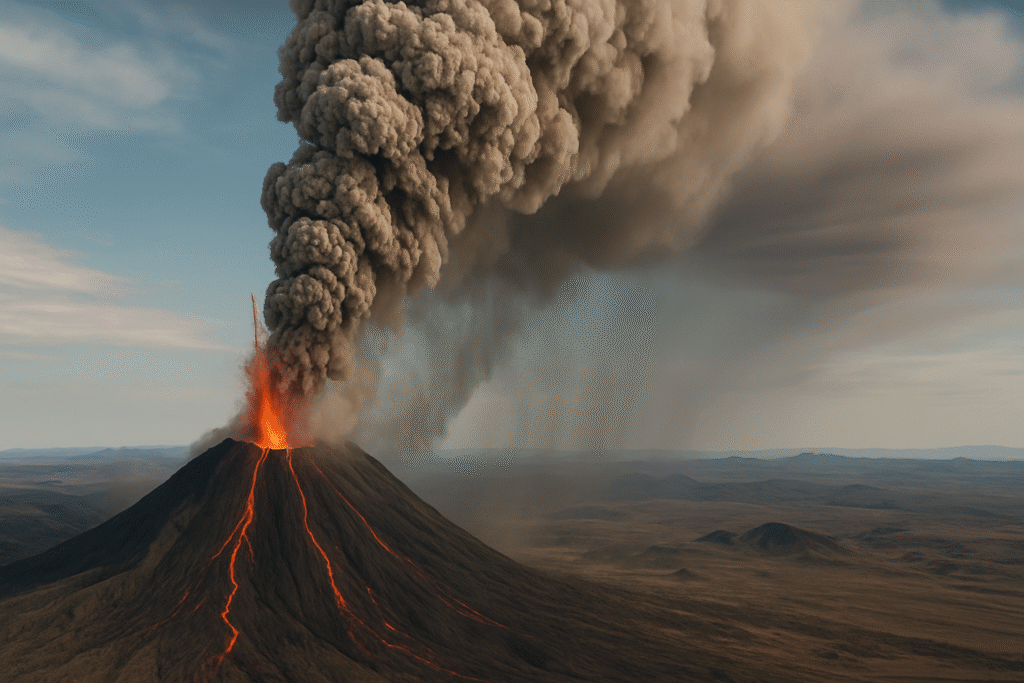Ethiopia Volcano Erupts After 10,000 Years, Ash Travels Towards India
A rare volcanic eruption in Ethiopia has triggered disruptions across international flight routes, including India. The Hayli Gubbi volcano in the Afar region erupted for the first time in nearly 10,000 years, sending massive ash clouds soaring up to 14 km into the atmosphere.
Strong upper-level winds carried the ash over the Red Sea, across Yemen and Oman, and further into western and northern India on Monday night. The plume swept across Gujarat, Rajasthan, Maharashtra, Delhi-NCR, and Punjab, prompting aviation authorities to act.
Flight Operations Hit: Multiple Cancellations and Delays
The spreading ash in upper airspace forced airlines to cancel and delay several flights operating on Tuesday, 25 November.
Air India cancelled the following flights:
- AI 2822 – Chennai to Mumbai
- AI 2466 – Hyderabad to Delhi
- AI 2444 / 2445 – Mumbai–Hyderabad–Mumbai
- AI 2471 / 2472 – Mumbai–Kolkata–Mumbai
Akasa Air also cancelled Monday and Tuesday flights bound for Middle Eastern destinations such as Jeddah, Kuwait, and Abu Dhabi, citing unsafe airspace conditions.
In total:
- 7 international flights were cancelled
- 12 international flights were delayed
IMD: Ash Only in Upper Troposphere, No Impact on AQI
Despite concerns over pollution, the India Meteorological Department (IMD) clarified that the volcanic ash is confined to the upper troposphere and is not mixing with surface-level air.
IMD Director General Mrutyunjay Mohapatra confirmed:
“This volcanic ash is affecting only flight operations. It has no impact on air quality or weather conditions. Our estimate is that the ash will move towards China by evening.”
This means India’s AQI and ground-level pollution remain unaffected by the eruption.
Why Did Hayli Gubbi Suddenly Erupt?
Experts explain that the dormant Hayli Gubbi volcano became active due to tectonic activity in Ethiopia’s Afar region—one of the most geologically active zones in the world.
Scientific advisor Narottam Sahoo said:
“The volcanic system reactivated after nearly 10,000 years due to tectonic movement.”
The eruption pushed ash high into the atmosphere, which winds then carried hundreds of kilometres across continents.
Originally published on 24×7-news.com.








